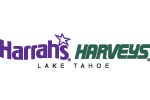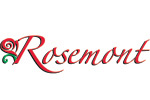|
1. What resources/books/websites would you recommend for people new to the business? A few books that I find useful are "The Complete Idiot's Guide to Meetings & Events"--though a bit outdated, it still is relevant and easy to follow—and "The Convention Industry Council Manual" (www.conventionindustry.org). If you also go to www.pcma.org, www.mpiweb.org and www.asaecenter.org and look in their bookstores, you will find some books that will be helpful. I especially recommend anything to help you learn about risk management and contracts in addition to logistics. Useful websites include: www.conventionindustry.org and the APEX reports. APEX stands for Accepted Practices Exchange, an initiative of the CIC designed to help planners and suppliers speak the same language and use similar procedures and forms. You will learn so much by reading the various panels' reports and reviewing the checklists and terminology report. Go to www.corbinball.com and look through his resources for some additional links. 2. Do you consider a sourcer a planner? If by "sourcer" you mean what the industry calls a "third party" ... it depends! (I answer that to many things.) If someone is conducting site selections, works on commission paid by the vendor (usually a hotel), does not do any of the meeting itself and may not have involvement in the negotiation and/or writing of the contract, I am sometimes uncertain if that person is in fact a "planner." The industry however generally considers that category of work in the planning category. It's a fine line. Wish I knew more of what the question asked was about. 3. How to write or convey an effective site analysis report to committee members...what info to include...what not to include? Ah…it depends--what information they need to provide input and/or make a recommendation and/or make a decision. What I would do is to determine up front--prior to the RFP being sent and prior to any site inspection being conducted--what information is needed to make a decision. For example, some committees may want all the details (number of rooms in the property, rates, food and beverage prices, taxes, service charges, ancillary charges, other events in the city or the property, etc.), while some may want just the rates. I would ask questions first and then provide the information that is needed, and only that information, in a chart, and be prepared to answer other questions as they arise during a report to the committee. 4. Why would a location need to know the percentage of male/female and age ranges in order to give a proposal? Oh, the property wouldn't need to know--they can respond with pretty generic information. You however do want to provide that so that what you get in return will reflect how the property can accommodate your group. The most obvious would be restroom configurations for the percentages of men/woman. For age ranges, you want to know, as an example, the walking distance from elevators to guest rooms to meeting rooms to recreation and public areas. Those are simple examples. My practice has been to provide as much information as possible to enable a venue to customize the proposal for your specific group. 5. What about technology capabilities of the facility, as well as on-site support? If you are asking if you should ask those questions, the answer is yes if they are important to your group and your meeting. In addition to capabilities and on-site support (I am guessing for that technology), ask about where technology can be used on-property, what the charges are for the use of same, and for the on-site support. Find out specific kinds of technology supported and provide what your group uses to find out what can be done. 6. Are there legal obligations (or just best practices) in Canada and Western Europe to meet many of our similar issues covered in ADA? How does that impact our U.S.-based association liability hosting the meeting? For Canada, one resource is http://www.disabilitypolicy.ca/resourcesNational.php. For Western Europe, it will vary by country. Best is to talk with someone familiar with laws that cover people with disabilities and meetings. 7. If you already have your meeting scheduled and a citywide comes in, can we ask for consideration on those ancillary services from a CVB, city or other help? I believe this refers to a comment I may have made about buses needed for your smaller group when the citywide is using most of the transportation. If by "consideration" you mean, “Will they help you find more buses,” of course! The CVB in particular--and often the hotel in which your meeting is housed--wants to ensure success. If you are asking for financial consideration, it can't hurt to ask! 8. Another “other groups” question: Is there anything you can do to prevent controversial groups booking at the same property AFTER you've booked your meeting at that property? Another "it depends" response! It depends on what you have disclosed in your RFP and contracted based on those disclosures and your negotiations. If by "controversial groups" you mean those that would be in opposition to what your organization/company does or a group that may cause harm simply by being there at the same time, it may be possible. This gets into the realm of legal issues and I strongly recommend that you consult an industry attorney and talk with the property. If this question is about right now and you've just discovered that there may be a conflict, go immediately to the hotel and discuss the issues. Be prepared with legal information (from an attorney) about why this may be a problem. 9. Once you have a contract, do you have any say on what other groups book at the same time? In other words, what if I've booked and then another group books after me that is in competition with mine? See the response to the similar question about controversial groups. Often, groups do not disclose in their RFPs or in the process of the site selection and contract negotiation the concerns/considerations that may interfere with the productivity of the meeting and/or the safety of guests. If this is an “uh-oh” question--meaning that you've just learned this--go immediately to the hotel to discuss. And shame on them for not knowing enough about their clients and discussing at staff meetings business booked so that the second group was booked without their knowledge of your group! Then too, in today's business climate, it is very tough for hotels to turn business away. That said, they want each group to succeed so they will try to work with all clients. 10. I recently attended Best Events Expo in Boston and the topic of Green Meetings was a workshop and there was a lot of discussion regarding building this into your RFP--asking the hotel/facility what their Green procedures are. Do you have any comments about this? DO IT! Go to the Green Meetings Industry Council (GMIC) at www.greenmeetings.info and see what they have provided on their site. Consider attending the GMIC annual meeting in Denver this spring to learn more. |
Sponsored by: |






